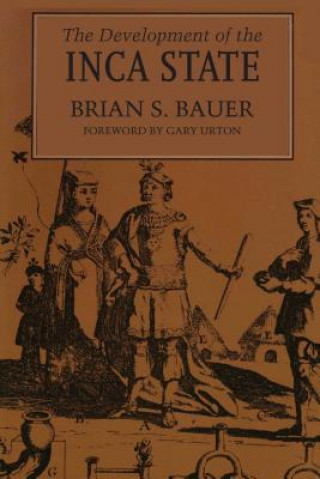
Kód: 04872508
The Development of the Inca State
Autor Brian S. Bauer
The Inca empire was the largest state in the Americas at the time of the Spanish invasion in 1532. From its political center in the Cuzco Valley, it controlled much of the area included in the modern nations of Ecuador, Peru, Chil ... celý popis
- Jazyk:
 Angličtina
Angličtina - Vazba: Brožovaná
- Počet stran: 203
Nakladatelství: University of Texas Press, 1996
- Více informací o knize

Mohlo by se vám také líbit
-

T'Choupi
236 Kč -

Sexual Nature/Sexual Culture
1615 Kč -

Globalization, Utopia and Postcolonial Science Fiction
1681 Kč -

Money in Their Own Name
1292 Kč -
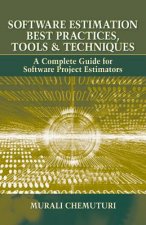
Software Estimation Best Practices, Tools, & Techniques
2125 Kč -
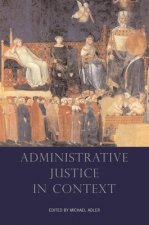
Administrative Justice in Context
4940 Kč -

Aleksandr Pushkin's 'The Tales of Belkin'
1776 Kč
Darujte tuto knihu ještě dnes
- Objednejte knihu a zvolte Zaslat jako dárek.
- Obratem obdržíte darovací poukaz na knihu, který můžete ihned předat obdarovanému.
- Knihu zašleme na adresu obdarovaného, o nic se nestaráte.
Více informací o knize The Development of the Inca State
Nákupem získáte 70 bodů
 Anotace knihy
Anotace knihy
The Inca empire was the largest state in the Americas at the time of the Spanish invasion in 1532. From its political center in the Cuzco Valley, it controlled much of the area included in the modern nations of Ecuador, Peru, Chile, and Bolivia. But how the Inca state became a major pan-Andean power is less certain. In this innovative work, Brian S. Bauer challenges traditional views of Inca state development and offers a new interpretation supported by archaeological, historical, and ethnographic evidence. Spanish chroniclers of the sixteenth and seventeenth centuries attributed the rapid rise of Inca power to a decisive military victory over the Chanca, their traditional rivals, by Pachacuti Inca Yupanqui. By contrast, Bauer questions the usefulness of literal interpretations of the Spanish chronicles and provides instead a regional perspective on the question of state development. He suggests that incipient state growth in the Cuzco region was marked by the gradual consolidation and centralization of political authority in Cuzco, rather than resulting from a single military victory. Synthesizing regional surveys with excavation, historic, and ethnographic data, and investigating broad categories of social and economic organization, he shifts the focus away from legendary accounts and analyzes more general processes of political, economic, and social change. The Inca empire was the largest state in the Americas at the time of the Spanish invasion in 1532. From its political center in the Cuzco Valley, it controlled much of the area included in the modern nations of Ecuador, Peru, Chile, and Bolivia. But how the Inca state became a major pan-Andean power is less certain. In this innovative work, Brian S. Bauer challenges traditional views of Inca state development and offers a new interpretation supported by archaeological, historical, and ethnographic evidence. Spanish chroniclers of the sixteenth and seventeenth centuries attributed the rapid rise of Inca power to a decisive military victory over the Chanca, their traditional rivals, by Pachacuti Inca Yupanqui. By contrast, Bauer questions the usefulness of literal interpretations of the Spanish chronicles and provides instead a regional perspective on the question of state development. He suggests that incipient state growth in the Cuzco region was marked by the gradual consolidation and centralization of political authority in Cuzco, rather than resulting from a single military victory. Synthesizing regional surveys with excavation, historic, and ethnographic data, and investigating broad categories of social and economic organization, he shifts the focus away from legendary accounts and analyzes more general processes of political, economic, and social change.
 Parametry knihy
Parametry knihy
Zařazení knihy Knihy v angličtině Humanities Archaeology
698 Kč
- Plný název: The Development of the Inca State
- Autor: Brian S. Bauer
- Jazyk:
 Angličtina
Angličtina - Vazba: Brožovaná
- Počet stran: 203
- EAN: 9780292708488
- ISBN: 0292708483
- ID: 04872508
- Nakladatelství: University of Texas Press
- Hmotnost: 332 g
- Rozměry: 230 × 154 × 319 mm
- Datum vydání: 01. June 1996
Oblíbené z jiného soudku
-

Fundamentals of Tree Ring Research
1330 Kč -

Bog Bodies Uncovered
613 Kč -
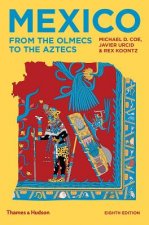
Mexico
516 Kč -

Ancient Treasures
477 Kč -

World Prehistory and Archaeology
2970 Kč -

From Kostenki to Clovis
5094 Kč -

Faunal Extinction in an Island Society
5094 Kč -

Hunter-Gatherer Economy in Prehistory
1011 Kč -
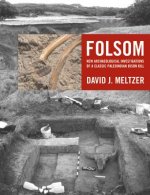
Folsom
2820 Kč -
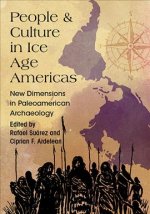
People and Culture in Ice Age Americas
1978 Kč -

Istanbul
410 Kč -

Oxford Handbook of Archaeological Ceramic Analysis
1335 Kč -

Magical House Protection
793 Kč -

Sumerian World
1613 Kč -

Abusir
1177 Kč -

Master Plan
410 Kč -

In Search of Lake Monsters
611 Kč -

Archaeology
1315 Kč -

In Small Things Forgotten
369 Kč -

Flint Knapping
454 Kč -
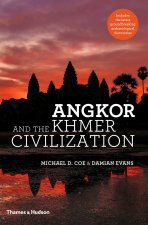
Angkor and the Khmer Civilization
666 Kč -
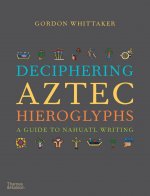
Deciphering Aztec Hieroglyphs
678 Kč -

Archaeology: The Whole Story
676 Kč -

Great Archaeologists
363 Kč -

Archaeology
1474 Kč -

Bigger Than History
355 Kč -

Prehistoric Life - Evolution and the Fossil Record
3175 Kč -

Digging for Hitler
950 Kč -

Tarim Mummies
554 Kč -
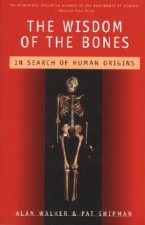
The Wisdom of the Bones: In Search of Human Origins
449 Kč -

Protecting the Body in War and Combat
1479 Kč -
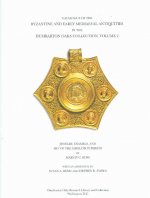
Catalogue of the Byzantine and Early Mediaeval A - With an Addendum Jewelry, Enamels and Art of the Migration V 2
3688 Kč -
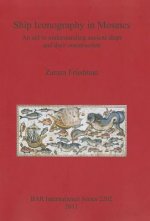
Ship Iconography in Mosaics
2672 Kč -
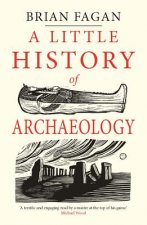
Little History of Archaeology
316 Kč -
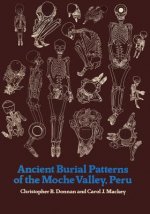
Ancient Burial Patterns of the Moche Valley, Peru
1841 Kč -
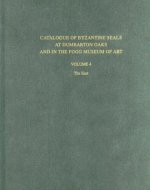
Catalogue of Byzantine Seals at Dumbarton Oaks and in the Fogg Museum of Art, 4: The East
1398 Kč -
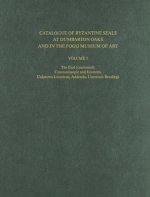
Catalogue of Byzantine Seals at Dumbarton Oaks a - Constantinople and Environs, Unknown Locations, Addenda, Uncertain Readings
1398 Kč -

Field Archaeologist's Survival Guide
1336 Kč -

Archaeologist's Manual for Conservation
1830 Kč -

Children, Death and Burial
1678 Kč -

Student Guide to Archaeological Analyses
2230 Kč -

Three Stones Make a Wall
442 Kč -

Women in Prehistory
753 Kč -
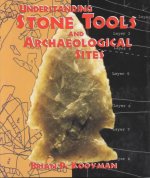
Understanding Stone Tools
1008 Kč -
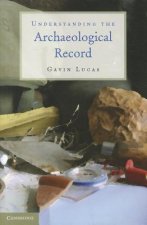
Understanding the Archaeological Record
1054 Kč -
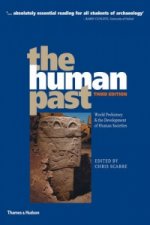
Human Past
1921 Kč -
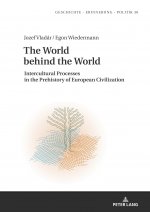
World behind the World
1646 Kč -
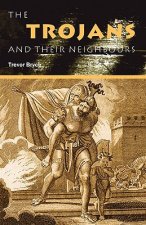
Trojans & Their Neighbours
1611 Kč -
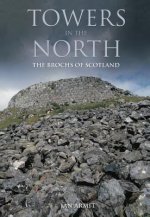
Towers in the North
751 Kč
Osobní odběr Praha, Brno a 12903 dalších
Copyright ©2008-24 nejlevnejsi-knihy.cz Všechna práva vyhrazenaSoukromíCookies



 Vrácení do měsíce
Vrácení do měsíce 571 999 099 (8-15.30h)
571 999 099 (8-15.30h)